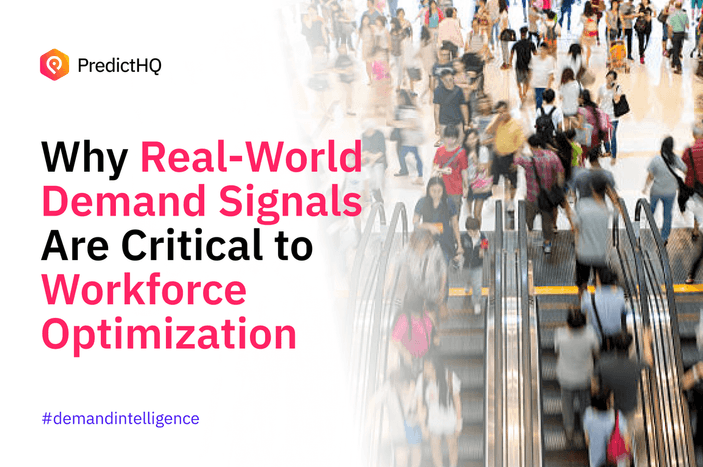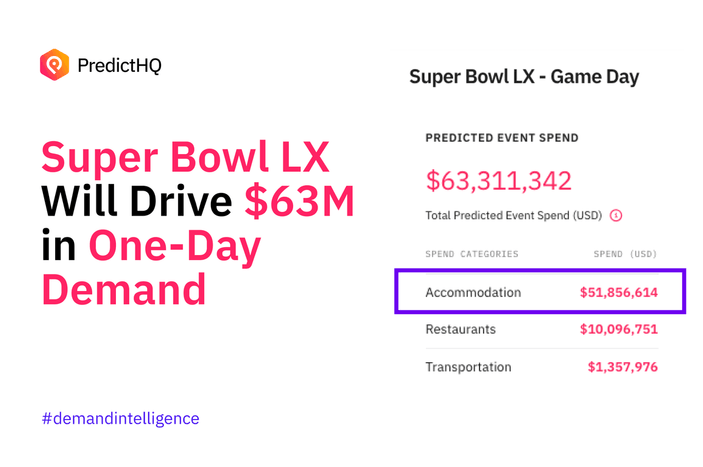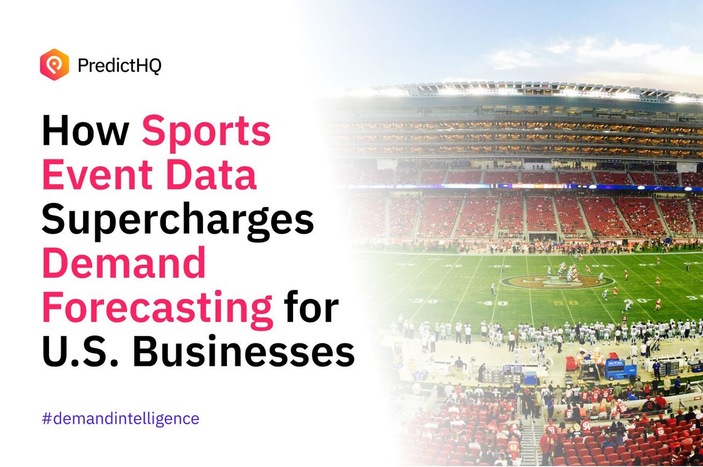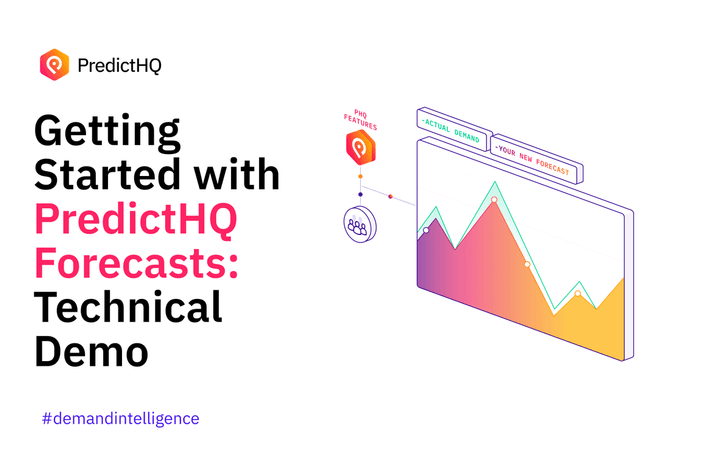Quickly identify key events that impact tourism
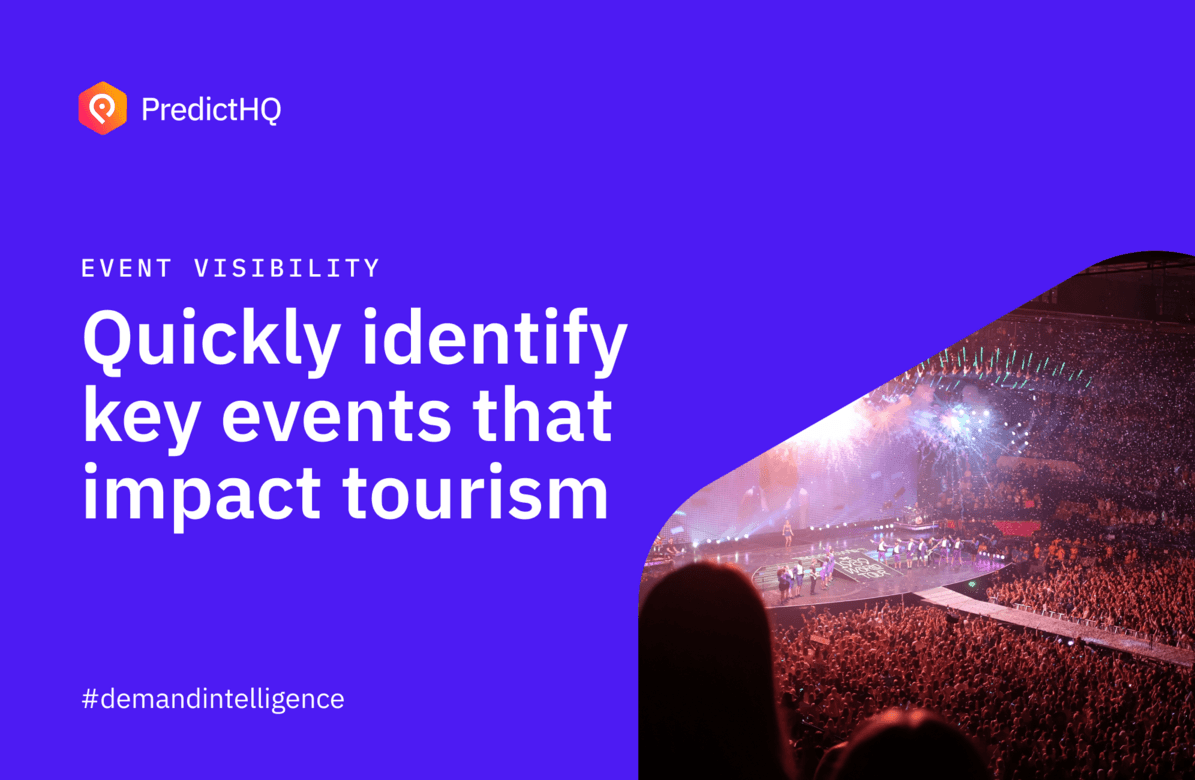
Events are powerful tourism attractions
Well-marketed events spark interest in those who become aware of them, making it a must-see experience for adventurers seeking bucket-list events. These events act as catalysts for change in budding tourism destinations, driving peak travel dates and making a name for their host location. Three major event categories that drive travel demand are sports, cultural festivals, and community events, such as:
Sports matches
- FIFA World Cup – economic impact of $17 billion to Qatar (Source)
- 2024 Summer Games – economic impact of $1.6 billion to Paris, France (Source)
- Kentucky Derby – economic impact of $217 million to Kentucky, US (Source)
Cultural festivals
- Electric Daisy Carnival – economic impact of $377 million to Las Vegas, US (Source)
- Toronto International Film Festival – economic impact of $114 million to Toronto, Canada (Source)
- Burning Man – economic impact of $60 million to Nevada, US (Source)
Community events
- LA County Fair – economic impact of $300 million to Los Angeles, US (Source)
- Fiesta de San Fermín – economic impact of $147 million to Pampalona, Spain (Source)
- Macy's Thanksgiving Day Parade – economic impact of $24.1 million to New York, US (Source)
Leading destination management companies (DMCs), destination marketing organizations (DMOs), and convention and visitor bureaus (CVBs) are leveraging events to more accurately track fluctuations in travel and accommodation demand in advance. The global events industry is expected to surpass a total market size of $2 trillion by 2028, up from $890 billion in 2020 (Source).
Events play a crucial role in generating domestic, inbound, and outbound tourism demand – which drives demand for transportation, accommodation, retail, restaurants, and more. Let’s take a look at three ways to maximize event-driven tourism for your region.
3 steps to generate and take advantage of travel demand to your region
Event tourism boosts economic growth by increasing the arrival of tourists and creating jobs across an entire region. In order to generate travel demand to your locality, you first need to understand what drives these visitors to travel.
Is it a unique event experience that draws in visitors? How do they learn more about it? How do they book their trip?
Once you’ve answered these questions, you’ll have a better understanding of your target audience and their process of booking a trip to your region. Next, you’ll use event visibility to intercept this process with strong event marketing, messaging, and an optimized website experience.
💡 Learn more: Quickly visualize the impact of events Visualization & Insights
1. Enhance targeted event-based marketing
To draw the attention of potential visitors, you need to identify and highlight major attractions and venues of your region. By understanding the key areas where events are typically hosted and the events themselves, you’ll be better suited to capitalize on the demand expected from these events.
Gain event visibility with PredictHQ Location Insights. This tool enables you to add specific addresses, cities, or entire countries to quickly see what events are happening nearby. Once you add your locations of interest, you get detailed insight into event impact per each location, powering an accurate picture of local event impact.
With insight into exactly which categories of events impact travel demand to your region, you can customize tourism marketing campaigns around relevant events weeks and months in advance. For example, free trip giveaways including admission to the event, or social media promotions that encourage user-generated content around the event, complete with campaign-specific hashtags.
2. Foster local tourism partnerships
By being aware of all events taking place within your region and within specific locations in your region far in advance, you can also optimize planning and facilitate local partnerships with venues and event organizers. For example, in preparation for the 2022 FIFA World Cup in Qatar, Discover Qatar has partnered with Qatar Airlines and Miami-based Overseas Network to provide:
- Dedicated customer service for US-based fans purchasing packages
- Unique travel experiences focused on local cultural attractions around each stadium
- Experiences such as pearl fishing and desert camp excursions
- Meet-and-greet receptions with professional players
While the FIFA World Cup is the world’s number one sporting event, you don’t need to be hosting a large-scale event in order to maximize travel demand. Start by being aware of your region’s events and the demand they currently generate– then you can focus partnership efforts on peak travel dates.
💡 Major events worldwide: See major events in your city now Top events
3. Optimize your SEO, website, and app
Your website or mobile app is where you have the most control over your brand and your relationship with visitors. Use this space to tell the story of why people love visiting your destination– then make it easy for users to do so!
Show your website visitors that you understand their thinking process and needs by speaking directly to it throughout their experience with your brand. Integrate SEO terms such as bucket list events, best travel destinations, vacation packages, and more to get users onto your site. Advertise tours, activities, and unique experiences for your region with a brand voice that makes you more relatable to the right audience.
Once users have landed on your site, you want to facilitate the process of getting them to your region– which is why online booking is crucial for DMOs to offer visitors. Online booking provides DMOs with their own marketplace while providing users with a customized experience, real-time availability, and confirmed bookings.
It’s also one area where DMOs can use event data to stand out from the competition. Integrate PredictHQ event data into your web UI to surface major events for your region, ranked by event volume, or even by aviation impact.
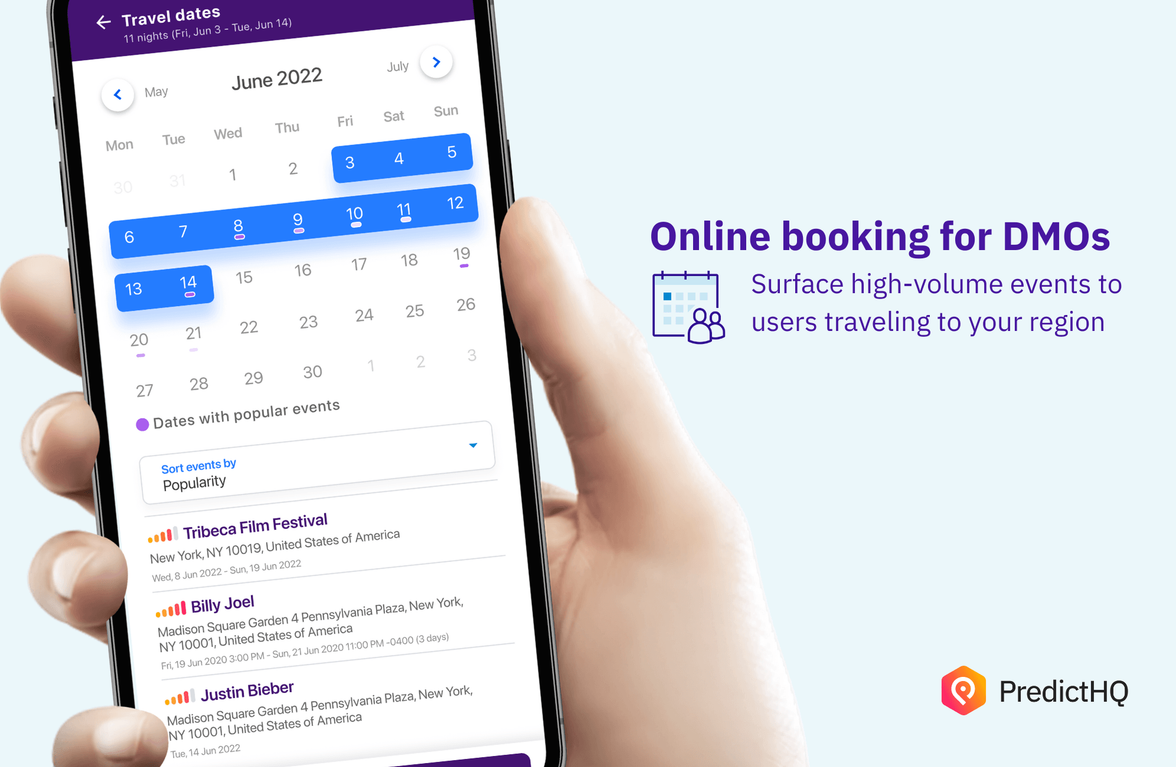
💡 Boost online bookings: 4 ways improve UI by surfacing events Booking UI
Stay ahead of event tourism trends
Global passenger traffic is expected to fully bounce back to 2019 levels by 2024. Join the ranks of leading DMCs, DMOs, and CVBs accurately tracking fluctuations in travel and accommodation demand in advance with insight into impactful events in their regions. For example, Launchtrip is a global booking travel company leveraging events to drive demand to certain destinations.
Better understand which types of events attract the most tourists, adjust your strategy to maximize demand for those events, and generate that same level of interest for other events in your community. Claim your 14-day trial today to start tracking events impacting your locations of interest.
💡 Get started: Start tracking events in your region today Sign up

